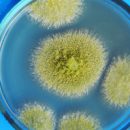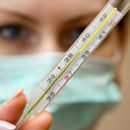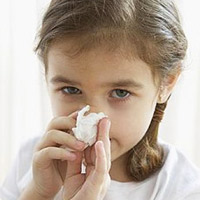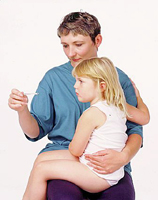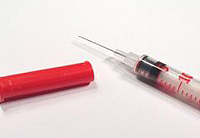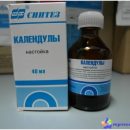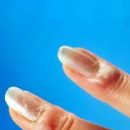What is opportunistic infections? What are opportunistic infections? How the prevention of opportunistic infections is carried out? Answers to these questions you will find in the article.
Content
What is opportunistic infections
So called diseases that may occur in the later stages of HIV infection with a weakened immune system. Some of them develop only with HIV infections, others in combination with HIV have a particularly heavy, life-threatening form.
HIV itself does not cause illness or death, the danger represents opportunistic diseases that develop against the background of HIV infection. These diseases are caused by infections that are harmless or almost harmless to normal immunity, but in the development of immunodeficiency may lead to serious problems. They are also called HIV-associated diseases.
Contrary to popular belief, a simple cold or flu is not more dangerous for HIV-positive people than for all other. Not all infections refer to opportunist and not so much.
What are opportunistic infections
Bacterial pneumonia. Bacteria infection with HIV infection can develop in bacterial pneumonia. Risk rises if you smoke or use drugs. PCP prevention (pneumatic pneumonia) helps prevent bacterial pneumonia. Bacteria may also cause severe gastrointestinal disorders.
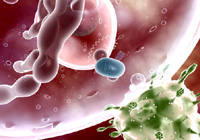 Human papilloma virus (HPV) - Widespread genital infection caused by a group of viruses combined by «human papilloma virus». HPV is easily transmitted from one person to another with sexual contacts. The virus causes genital warts that look like cones on the surface of the penis, vagina or anus. Certain types of HPV can also cause cervical cancer. The virus can be transmitted from one person to another even in the absence of symptoms. HPV can pass to everyone, however, people with HIV disease occurs significantly more seriously, can be renewed repeatedly and long time. Medicinal preparations from HPV do not exist, but there are numerous ways to remove warts and treatment of cervical dysplasia and anus caused by HPV.
Human papilloma virus (HPV) - Widespread genital infection caused by a group of viruses combined by «human papilloma virus». HPV is easily transmitted from one person to another with sexual contacts. The virus causes genital warts that look like cones on the surface of the penis, vagina or anus. Certain types of HPV can also cause cervical cancer. The virus can be transmitted from one person to another even in the absence of symptoms. HPV can pass to everyone, however, people with HIV disease occurs significantly more seriously, can be renewed repeatedly and long time. Medicinal preparations from HPV do not exist, but there are numerous ways to remove warts and treatment of cervical dysplasia and anus caused by HPV.
Histoplasmosis caused by a fungus living in the soil in which the birds fall through birds or other organic substances. In the human body, the fungus comes with inhalation of dust containing this fungus. Many people are exposed to fungus, but usually in a healthy body disease does not develop. Typically, histoplasmosis affects the lungs, however, people with a weakened immune system can spread to the whole organism. Histoofamosis is not transmitted to man. Histoplasmosis is treated with antifungal drugs.
Candidiasis (thrush) Usually amazes the mouth, larynx, lungs and / or vagina. Candidiasis mushrooms are naturally present in the human body, they are the cause of most cases of the disease. It is often found at HIV-negative people, but HIV-positive is much more susceptible to him. Heavy cases of candidiasis are in humans with immune status below 200 cells / ml. Candidiasis is treated with antifungal drugs, but repeated cases of illness.
Complex Mycobacterium Avium - The disease caused by Mycobacterium Avium and Mycobacterium Intracellulare mycobacterium. These two similar types of bacteria are present everywhere in water, soil, dust and food. The infection may affect any, however, HIV-positive risk of developing a serious illness is significantly higher. Bacteria can affect individual sites or spread throughout the body. There is a wide range of drugs for the prevention and treatment of the MYCOBACERIUM AVIUM complex, as well as to prevent its repeated flashes.
Cryptococcal meningitis. Caused by the fungus Cryptococcus, which under normal conditions is present in the soil, where it hits through the bird excrement. Cryptococcus comes to the human body when inhaled dust in which this fungus is present. Many people are exposed to fungus, however, in a healthy body, the disease is usually not developing. Cryptococcal meningitis is not transmitted from one person to another.
Cryptosporidiasis - Essential infection, easily transmitted during contact with water, feces and food, infected with an ordinary parasite Cryptosporidium. HIV-negative disease lasts one or two weeks, but people with HIV can continue much longer and even pose a threat to life. Medications for preventing and treatment of cryptosporidiosis does not exist, but there are various methods of charming diarrhea caused by infection.
Herpes Zoster, Also known, called Lisha, is caused by the same Herpes Varicella-Zoster virus as the windshield. Although this virus is striking HIV-negative people, it is most widely distributed among HIV-positive due to the weakening of the immune system. The result of the damage to the virus are extremely painful rashes on the chest, back and face. Rash usually appear on one body section and hold several weeks. Herpes Single Herpes is treated with anti-heer drugs and means for anesthesia.
Pneumatic pneumonia (PCP). The pathogen is a microorganism of Pneumocystis Carinii, living everywhere in the environment. It is believed that the fungus applies to air. The fungus may be present in the lungs of any person, however, pneumonia develops only in people with immune status below 200 cells / ml. Pneumatic pneumonia, although completely succumb to prevention and treatment, is a serious illness, which in the absence of treatment can become fatal. Pneumatic pneumonia is amenable to treating and preventing various antibiotics, such as Kotrimoxazole (Biseptol).
Simple herpes (HSV) - The disease caused by the Herpes Simplex virus. The east herpes virus causes ulcers on the lips («fever») and eyes, as well as this virus causes genital or anal herpes. People with HIV rash Herpes are more common and stronger than HIV-negative. With low immune status presents a serious problem. The existing anticherrements are removed and prevent herpes symptoms, although they do not cure it completely. If you do not have a virus of a simple herpes, avoid infection that can occur in sexual way or in contact with people who are ill to the active form of herpes.
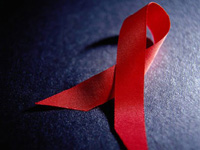 Toxoplasmosis. The pathogen is an intracellular parasite toxoplasma Gondii, causing people with immune status below 100 brain inflammation - encephalitis. Toxoplasmosis is transmitted when used by semi-walled meat, as well as from contact with cat litters. Toxoplasmosis is not transmitted from one person to another and does not develop in people with a healthy immune system. After infection of the toxoplasma can live long in the human body until the decline in immune status will allow infection to go to a dangerous disease.
Toxoplasmosis. The pathogen is an intracellular parasite toxoplasma Gondii, causing people with immune status below 100 brain inflammation - encephalitis. Toxoplasmosis is transmitted when used by semi-walled meat, as well as from contact with cat litters. Toxoplasmosis is not transmitted from one person to another and does not develop in people with a healthy immune system. After infection of the toxoplasma can live long in the human body until the decline in immune status will allow infection to go to a dangerous disease.
Tuberculosis (TB). Dangerous bacterial infection, usually affecting the lungs. To infected tuberculosis a person can from a patient with an active form of tuberculosis with cough, sneezing or when conversing. Although HIV-negative tuberculosis can be sick, for people with HIV, the risk is significantly higher. Although there are not every infected HIV to tuberculosis, TB infection accelerates the development of HIV infection and is the main cause of death among HIV-positive worldwide. That is why prevention, timely diagnosis and treatment of tuberculosis are very important for HIV-positive. The presence of mycobacteria is determined by the Mantu's skin sample - it should be carried out regularly, at least once a year. If the sample is positive (papula is more than 5 mm in diameter), prescribed preventive treatment with isoniazid. Depending on the severity of the disease, treatment may take several months and even years.
Cytomegalovirus (CMV) can cause people with low immune status dangerous eye disease - retinit - leading to loss of vision. CMV also causes diseases of the gastrointestinal tract, nervous system and other organs. With a positive reaction to the CMV antibodies and low immune status, prophylactic treatment is prescribed (Gancyclovir and DR. drugs). CMV is already present in the body of most people: it is most often transmitted by sexual path. If you are CMV negative, protect, using condoms or secure sex.
Prevention of opportunistic infections
In HIV infection, it is important to avoid infections that can be dangerous with weakened immunity. However, live «under the hood» No need.
Several elementary recommendations can help you avoid troubles:
- Talk to the doctor about vaccination against various infections. HIV-positive not recommended «Live vaccines», In other cases, they are not contraindicated.
- Do not eat raw fish and eggs, unattended meat or bird, there may be dangerous bacteria. Raw and ready-to-eat products need to be stored separately and cut on different cutting boards. Do not store products for too long, do not eat what «is about to spoil». Always carefully wash the fruits and vegetables, and, of course, hands.
- Dogs and cats are better feeding with special feed, and not raw meat, and do not miss regular visits to the veterinarian. Cats better do completely homely and not release to the street. If your cat lives at home, change her tray only in gloves. With immune status below 200 cells / ml better, if someone else does another.
- HIV-positive women are important regularly (about 6 months) to undergo a gynecological examination. Be sure to contact the doctor in disabilities of the menstrual cycle, abnormal discharge from the vagina or pain at the bottom of the abdomen. It is advisable to regularly make a cytological examination of the cervix, it will prevent the development of cancer.
- In the immune status below 100 cells / ml it is better to drink only bottled or well-boiled water for the prevention of such an infection as cryptosporidiasis.
- If possible, contact people with an active form of tuberculosis should be avoided. If you had a similar risk - consult a doctor may need a preventive course of treatment that will prevent the development of tuberculosis.
Finally, do not forget to apply for a doctor with serious and dangerous symptoms, which can also relate to various infections: high temperatures; blood in a chair; long diarrhea; severe breast pain or abdomen; non-leaving headaches; difficult breathing; impairment of vision; slug and yazens in the oral cavity. These manifestations may not be connected with any serious diseases, but why risk if you can get rid of them?

